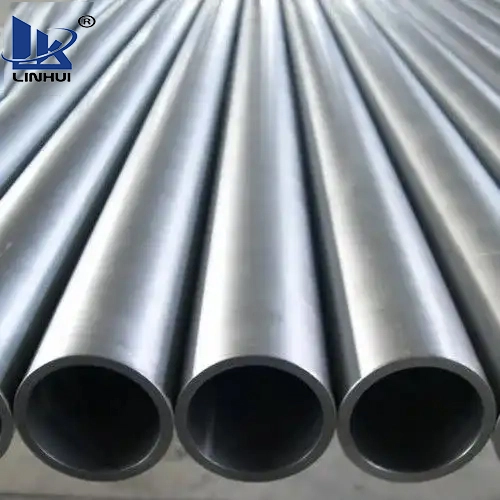Quality and Safety:
Titanium tubes are extensively used in colorful diligence, including the chemical, medicinal, and medical sectors due to their unique combination of erosion resistance and mechanical strength. The American Society for Testing and Accoutrements( ASTM) has developed a series of norms to ensure the quality and safety of these tubes. One of these norms is ASTM B338, which outlines the conditions for titanium tubes. In this blog, we will explore the ASTM B338 standard and its significance in icing product quality and safety.
What is ASTM B338:
ASTM B338 is a standard that specifies the requirements for wrought titanium and titanium-aluminum alloys in seamless and welded tube form. It outlines the material composition, mechanical properties, dimensional requirements, and testing methods for these tubes. The standard provides a comprehensive set of guidelines to ensure that titanium tubes meet the necessary quality and performance criteria.
ASTM B338 Titanium Tube Related Parameters:

Some of the key aspects:
Material Composition: The standard specifies the allowable chemical composition limits for titanium and titanium-aluminum alloys used in tube manufacturing. It ensures that the material used meets the required purity and alloy composition requirements.

ASTM B338 Titanium Tube.jpg
Mechanical Properties: ASTM B338 outlines the mechanical properties that need to be tested and evaluated for titanium tubes. These include tensile strength, yield strength, elongation, and hardness. The standard provides guidance on the appropriate testing methods and acceptable ranges for these properties.
Dimensional Requirements: The standard establishes dimensional tolerances for titanium tubes, including outside diameter, wall thickness, and length. It ensures that tubes meet the necessary dimensional accuracy and consistency for their intended use.
Testing Methods: ASTM B338 outlines the testing methods required to evaluate the quality and performance of titanium tubes. This includes tests for material composition, mechanical properties, and dimensional measurements. The standard provides guidance on the appropriate testing procedures and acceptance criteria.
Importance of ASTM B338 for Titanium Tubes:
The ASTM B338 standard plays a pivotal part in icing the quality and safety of titanium tubes. They are some of the crucial benefits of clinging to this standard
Uniform Quality By following ASTM B338, ASTM B338 Titanium Tube manufacturers can ensure that their titanium tubes meet harmonious quality norms. This allows for dependable performance across colorful operations and ensures a position playing field for manufacturers.
Safety Considerations: The standard takes into account safety-related factors similar to material composition and mechanical parcels. It ensures that titanium tubes meet the necessary safety conditions for their intended use, minimizing any implicit hazards.
Compatibility: ASTM B338 facilitates the interchangeability of titanium tubes across different industries and applications. This allows for easy integration into existing systems without any compatibility issues.
Reliability: By following the ASTM B338 standard, manufacturers can ensure that their titanium tubes deliver reliable performance over a wide range of applications. This enhances customer satisfaction and builds trust among end users.
Compliance with Regulations: The standard serves as a basis for compliance with local and international regulations related to titanium tube manufacturing and usage. It ensures that manufacturers and users are in line with legal requirements in their respective regions.
Conclusion:
ASTM B338 Titanium Tube is a crucial product standard for ensuring the quality and safety of titanium tubes. By adhering to this standard, manufacturers can ensure reliable performance, safety, and compliance with regulations while building trust among their customers.
If you are finding ASTM B338 Titanium Tube Factories, please contact linhui@lksteelpipe.com












